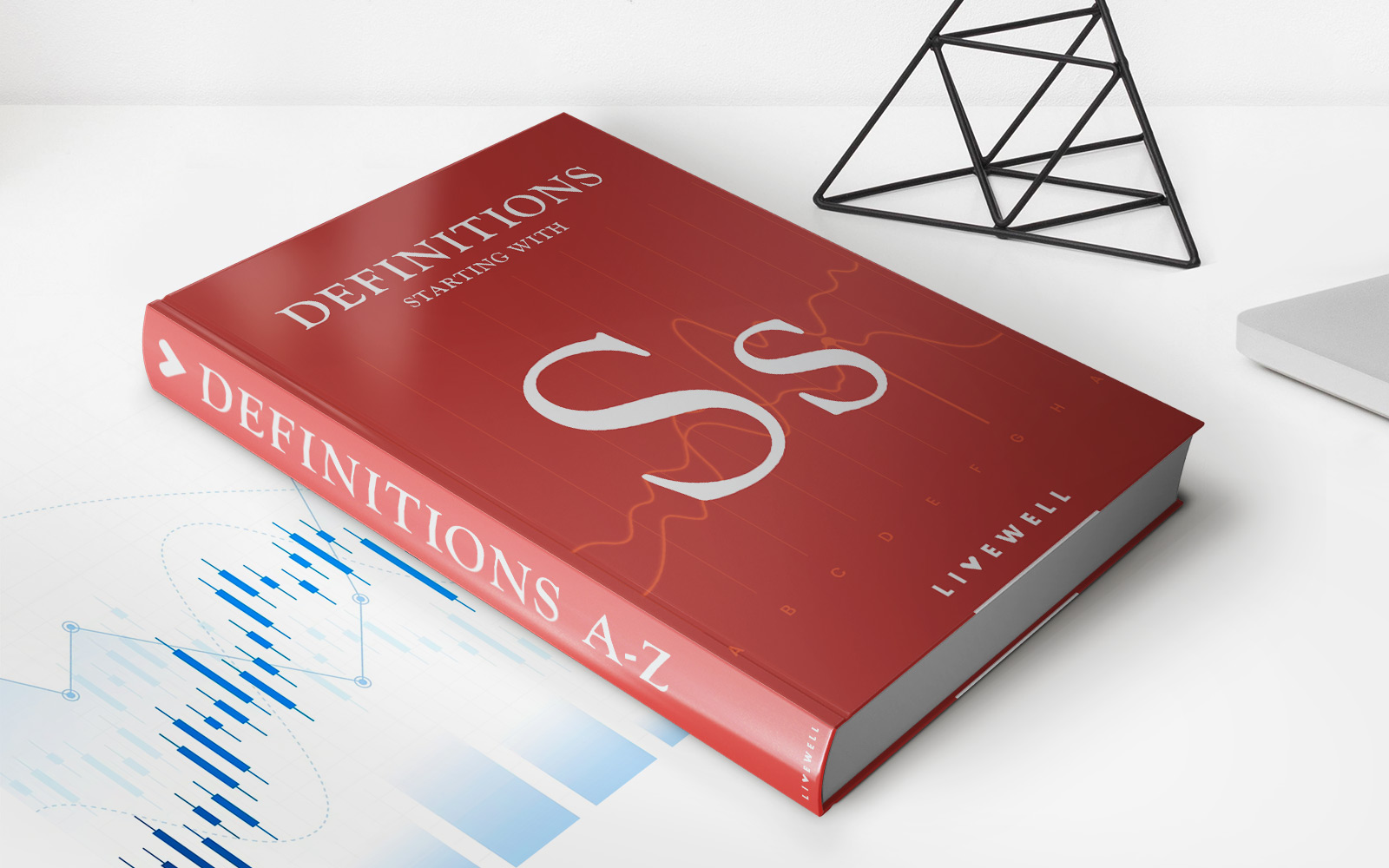Home>Finance>How Will Paying Off Student Loans Affect Credit Score


Finance
How Will Paying Off Student Loans Affect Credit Score
Modified: March 6, 2024
Discover how paying off student loans can impact your credit score. Find out the effects on your finance and credit standing.
(Many of the links in this article redirect to a specific reviewed product. Your purchase of these products through affiliate links helps to generate commission for LiveWell, at no extra cost. Learn more)
Table of Contents
Introduction
Student loans have become an unavoidable reality for many individuals seeking higher education. While these loans provide the financial means to pursue educational goals, they also come with the responsibility of repayment. For those who have successfully navigated the often long and arduous journey of paying off their student loans, understanding the impact on their credit score becomes crucial.
Your credit score is a numerical representation of your creditworthiness, providing lenders and financial institutions with insight into your ability to manage debt. It plays a significant role in determining your eligibility for various financial products, including loans, credit cards, and even job applications.
When it comes to student loans, the impact on your credit score depends on several factors, including your payment history, credit utilization, length of credit history, and the types of credit you have. It’s important to have a clear understanding of how paying off your student loans can affect your credit score and how to navigate the process to maximize the positive impact.
Understanding Credit Score
Before delving into the impact of paying off student loans on your credit score, it’s essential to have a solid understanding of what a credit score is and how it is calculated.
A credit score is a three-digit number that represents your creditworthiness and financial responsibility. It is typically generated by credit bureaus, such as Equifax, Experian, and TransUnion, using various factors and algorithms. The most widely used credit scoring model is the FICO score, ranging from 300 to 850.
The factors that influence your credit score include:
- Payment history: This is the most significant factor, accounting for approximately 35% of your credit score. It reflects whether you have made timely payments on your debts.
- Credit utilization: This refers to the amount of available credit you are using. Keeping your credit utilization below 30% is generally recommended.
- Length of credit history: The longer your credit history, the more stable it appears to lenders. This accounts for approximately 15% of your credit score.
- Types of credit: Having a mix of different types of credit, such as credit cards, mortgages, and student loans, can positively impact your credit score.
- New credit: Applying for multiple new credit accounts within a short period can raise red flags and potentially lower your credit score.
Understanding these factors is crucial when it comes to managing and improving your credit score. With this foundation, we can now explore how student loans specifically impact your credit score.
Impact of Student Loans on Credit Score
Student loans can have both positive and negative effects on your credit score, depending on how you manage them. Here are some key points to consider:
Establishing a Credit History: Student loans offer an opportunity to establish a credit history, especially for those who have limited or no previous credit. By making regular and timely payments on your student loans, you can start building a positive credit history, which is essential for future financial endeavors.
Payment History: Your payment history is a significant factor in determining your credit score. Consistently making on-time payments for your student loans can have a positive impact on your credit score. On the other hand, missing payments or defaulting on your loans can severely damage your credit score.
Credit Utilization: The amount of student loan debt you carry contributes to your overall credit utilization. Higher levels of debt can increase your credit utilization ratio, which may negatively impact your credit score. It’s important to keep your student loan debt within manageable limits and consider paying it down strategically to lower your credit utilization.
Length of Credit History: The length of time you have held your student loans can positively impact your credit score, as it demonstrates a stable and consistent payment history. If you have successfully paid off your student loans, it can potentially improve your credit score by increasing the average age of your credit accounts.
Types of Credit: Having a diverse mix of credit accounts, including student loans, can positively impact your credit score. Student loans are considered installment loans and provide a different credit type than revolving credit, such as credit cards. This mix can contribute to a more favorable credit profile.
Loan Inquiries: Applying for student loans or refinancing options may result in hard inquiries on your credit report, which can temporarily lower your credit score. It’s important to be mindful of the number of loan inquiries you make and to space them out strategically.
It’s crucial to note that the exact impact of student loans on your credit score will vary depending on your specific financial situation and how you manage your loans. Now, let’s explore how paying off your student loans can affect your credit score.
Paying Off Student Loans and Credit Score
Paying off your student loans can have a positive impact on your credit score, but it’s important to understand the potential effects and how they may vary depending on your individual circumstances.
Positive Impact on Payment History: Successfully paying off your student loans demonstrates responsible financial behavior and a strong payment history. This can boost your credit score by showcasing your ability to manage and repay debts on time.
Improved Credit Utilization: Paying off your student loans reduces your overall debt, resulting in a lower credit utilization ratio. Lowering your credit utilization can have a positive influence on your credit score, as it signals to lenders that you are managing your debts effectively.
Increased Creditworthiness: Paying off your student loans can enhance your creditworthiness and strengthen your credit profile. This can open doors to better financial opportunities, such as lower interest rates on loans and higher credit limits on credit cards.
Boost in Credit Score: While the impact of paying off student loans on your credit score may vary, many individuals experience a noticeable increase in their credit score after clearing their loan debt. However, the exact increase will depend on various factors, including your overall credit history and the presence of other debts.
It’s important to note that paying off your student loans may not immediately reflect on your credit report. It can take some time for the updated information to be reported by the loan servicer and reflected in your credit history. Be patient and continue practicing responsible financial habits.
However, it’s essential to consider other factors when deciding whether to prioritize paying off student loans. For example, if you have other high-interest debts, such as credit card debt, it may be more financially beneficial to focus on paying that off first.
Ultimately, paying off your student loans is a significant achievement that can positively impact your credit score. However, it’s important to weigh your options and consider your overall financial goals before making repayment decisions.
Factors to Consider
When it comes to paying off student loans and considering the impact on your credit score, there are several factors to take into account:
Interest Rates: Evaluate the interest rates on your student loans. If the interest rates are high, it may be financially wise to prioritize paying off those loans to minimize the total amount paid over time. However, if the interest rates are relatively low, you may consider other financial goals, such as saving for emergencies or investing, before accelerating repayment.
Other Debts: Assess your overall debt burden. If you have other high-interest debts, such as credit card debt or personal loans, it may be more beneficial to prioritize paying those off first. In some cases, focusing on paying off higher interest debts can save you more money in the long run.
Financial Goals: Consider your financial goals and priorities. If you have other financial objectives, such as saving for a down payment on a house or starting a business, allocating funds towards these goals may be more important to you than paying off your student loans early. It’s essential to have a clear understanding of your financial priorities and align them with your repayment strategy.
Emergency Fund: Establishing an emergency fund is crucial for financial stability. Before accelerating your student loan payments, ensure that you have an adequate emergency fund to cover unexpected expenses. Having this safety net can provide peace of mind and protect you from going into further debt in case of emergencies.
Long-Term Financial Outlook: Consider your long-term financial outlook. If paying off your student loans early allows you to save more in interest and achieve financial freedom sooner, it may be worth prioritizing. On the other hand, if you have a low-interest loan with manageable monthly payments, you may choose to focus on other financial goals while making regular loan payments.
It’s important to evaluate these factors in relation to your unique financial situation. There is no one-size-fits-all approach to paying off student loans and managing your credit score. Consider consulting with a financial advisor or using online resources to help you make informed decisions based on your individual circumstances.
Monitoring and Maintaining Credit Score
Once you have paid off your student loans or have a plan in place to do so, it’s crucial to monitor and maintain your credit score. Here are some essential tips to help you with this process:
Regularly Check Your Credit Report: Obtain a free copy of your credit report from each of the major credit bureaus annually or use a reputable credit monitoring service. Review your report for accuracy, and report any discrepancies or errors immediately. Monitoring your credit report allows you to stay aware of any changes and address any potential issues promptly.
Pay Bills on Time: Consistently make on-time payments for all your debts, not just your student loans. Late payments can have a negative impact on your credit score, so it’s crucial to manage your finances responsibly and pay your bills by their due dates.
Keep Credit Utilization Low: Aim to keep your credit utilization ratio below 30%. This means using only a portion of your available credit. High credit utilization can adversely affect your credit score. Regularly review your credit card balances and keep them as low as possible.
Avoid Opening Unnecessary Credit Accounts: While a mix of credit types can be beneficial, avoid opening unnecessary credit accounts. Each new credit inquiry can temporarily lower your credit score, and having too many accounts can be difficult to manage effectively.
Manage Debt Responsibly: If you acquire new debts, such as a car loan or mortgage, be sure to manage them responsibly. Make timely payments and avoid taking on more debt than you can comfortably handle. Responsible debt management contributes to maintaining a healthy credit score.
Keep Old Accounts Open: Closing old credit accounts can potentially shorten your credit history and negatively impact your credit score. If you have no outstanding balances or annual fees, it may be beneficial to keep these accounts open to maintain a longer credit history.
Use Credit Monitoring Tools: Utilize credit monitoring tools and services to stay informed about your credit score, receive alerts for any changes, and track your progress over time. These tools can help you identify areas for improvement and take proactive steps to maintain or improve your credit score.
Remember that maintaining a good credit score is an ongoing process. This involves responsible financial management, making timely payments, and monitoring your credit regularly. By doing so, you can ensure that your credit score remains healthy even after paying off your student loans.
Conclusion
Paying off student loans is a significant accomplishment that can positively impact your credit score and financial well-being. Understanding the relationship between student loans and credit score is crucial for making informed decisions about repayment strategies. While paying off your student loans can improve your credit score, it’s essential to consider other factors such as interest rates, other debts, and long-term financial goals.
Monitoring and maintaining your credit score even after paying off your student loans is just as important. Regularly checking your credit report, making on-time payments, keeping credit utilization low, and managing debt responsibly are key to maintaining a healthy credit score. Using credit monitoring tools can help you stay on top of your credit and identify any areas for improvement.
Remember, everyone’s financial journey is unique, and there is no one-size-fits-all approach. Assessing your individual circumstances, priorities, and goals is crucial when making decisions about paying off student loans and managing your credit score.
By understanding the impact of student loans on your credit score and implementing effective strategies, you can pave the way for a strong credit profile and financial success in the future. Prioritize responsible financial habits, remain diligent in monitoring your credit, and make informed decisions that align with your overall financial goals.














